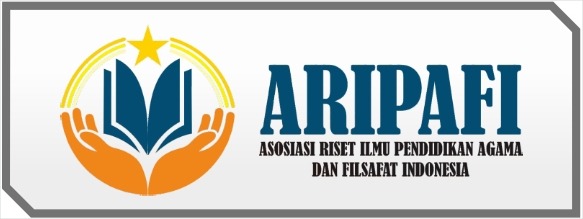The Influence of Social Media on the Attitude of Religious Moderation among College Students
DOI:
https://doi.org/10.61194/ijis.v3i3.808Keywords:
Students, Social Media, Religious ModerationAbstract
In the digital age, social media has become a powerful instrument in shaping public opinion, including religious perspectives among college students. The proliferation of religious content across platforms such as Instagram, TikTok, YouTube, and Facebook presents both opportunities and challenges for fostering religious moderation. This study aims to examine how social media influences students’ attitudes toward religious moderation, with a particular focus on core values such as justice ('adl), balance (tawazun), and tolerance (tasamuh). The research adopts a qualitative literature review method, analyzing scholarly articles, books, and official publications published within the last five years that discuss the relationship between social media, youth behavior, and religious moderation. The findings indicate that social media plays a dual role. On one hand, it serves as a platform for promoting inclusive and moderate religious messages, often through visually engaging and relatable content. On the other hand, the same platforms may also disseminate radical ideologies, hate speech, and intolerant narratives, particularly when users lack digital literacy and critical thinking skills. The study highlights the importance of equipping students with the ability to critically evaluate religious content on social media and to distinguish between authentic moderation messages and manipulative, extremist discourse. In conclusion, this study underscores the necessity of integrating religious moderation into digital literacy education within higher education institutions. Collaborative efforts between educators, religious leaders, and content creators are essential in ensuring that digital spaces are dominated by constructive and peaceful religious narratives. The role of students as digital natives and future agents of change makes their involvement in this discourse both timely and essential.
References
Arsana, I. N. A., Purnawati, N. W., & Handoko, H. (n.d.). SIKAP MODERASI BERAGAMA DALAM MENGGUNAKAN MEDIA SOSIAL. Widya Katambung, 14(2), 2. https://doi.org/10.33363/wk.v14i2.1124 DOI: https://doi.org/10.33363/wk.v14i2.1124
Arsana, I. N. A., Purnwati, N. W., & Pustikayasa, I. M. (2022). Cyberlaw in the Perspective of the Effect of Technological Development on Hate Speech on Social Media. International Proceeding.
Baedowi, M., Musmuallim, & Chamadi, M. R. (n.d.). Sikap Moderasi Beragama mahasiswa di Universitas Jenderal Soedirman Purwokerto. INJIRE, 1(2), 2. DOI: https://doi.org/10.63243/wqkcef67
Baedowi, M., & Sari, L. K. (n.d.). Penguatan Wawasan Kebangsaan bagi Mahasiswa Melalui Mata Kuliah Pancasila. Journal on Education, 5(4), 4. https://doi.org/10.31004/joe.v5i4.2719
D, M. A., Tike, A., & Tajibu, K. (n.d.). The Use of Instagram Social Media for Religious Moderation among Students of the Faculty of Da’wah and Communication at UIN Alauddin Makassar. Jurnal Mercusuar, 4(2), Article, 2.
facrian, M. R. (2018). Toleransi Antar Umat Beragama Dalam Al-Qur‟an ( Telaah Konsep Pendidikan Islam. Rajawali Pers.
Hamdi, S., & Dkk. (2021). Revitalisasi Syiar Moderasi Beragama Di Media Social: Gaungkan Konten Moderasi Untuk Membangun Harmonisasi. Intizar, 27(1). DOI: https://doi.org/10.19109/intizar.v27i1.8191
Hefni, W. (2020). Moderasi Beragama dalam Ruang Digital: Studi Pengarusutamaan Moderasi Beragama di Perguruan Tinggi Keagamaan Islam Negeri. Jurnal Bimas Islam, 13(1), 1. https://doi.org/10.37302/jbi.v13i1.182 DOI: https://doi.org/10.37302/jbi.v13i1.182
Kosasih, E. (2019). Literasi Media Sosial dalam Pemasyarakatan Sikap Moderasi Beragama. Jurnal Bimas Islam, 12(2). https://doi.org/10.37302/jbi.v12i2.118 DOI: https://doi.org/10.37302/jbi.v12i2.118
Mandala, I., Witro, D., & Juraidi, J. (2024). Transformasi Moderasi Beragama Berbasis Digital 2024: Sebagai Bentuk Upaya Memfilter Konten Radikalisme dan Ekstremisme di Era Disrupsi: Digital-Based Religious Moderation Transformation 2024: An Effort to Filter Radicalism and Extremism Content in the Age of Disruption. Jurnal Bimas Islam, 17(1), 1. https://doi.org/10.37302/jbi.v17i1.1242 DOI: https://doi.org/10.37302/jbi.v17i1.1242
Mubarok, A. R., & Sunarto, S. (2024). Moderasi Beragama di Era Digital: Tantangan dan Peluang. Journal of Islamic Communication Studies, 2(1), 1. https://doi.org/10.15642/jicos.2024.2.1.1-11 DOI: https://doi.org/10.15642/jicos.2024.2.1.1-11
Nawawi, A. M. N. (2019). Dakwah Islam Moderat dan Realitas Politik Identitas dalam Masyarakat Meme. Jurnal Bimas Islam, 12(1), 1. https://doi.org/10.37302/jbi.v12i1.100 DOI: https://doi.org/10.37302/jbi.v12i1.100
Nawawi, M. K., & Sari, R. A. (2023). Pengaruh Media Sosial terhadap Perilaku Beragama. Jurnal Pendidikan Tambusai, 7(2), 19143–19149. https://doi.org/10.31004/jptam.v7i2.9411
Nisar, M., & Ismail, M. (2023). The Understanding of Religious Moderation and Attitudes Students of Religious Sociology for Social Intolerance Iain Parepare. SOSIOLOGIA : Jurnal Agama Dan Masyarakat, 1(2). https://doi.org/10.35905/sosiologia.v1i2.3223 DOI: https://doi.org/10.35905/sosiologia.v1i2.3223
Novia, W., & Wasehudin, W. (2020). Penggunaan Media Sosial dalam Membangun Moderasi Beragama di Masa Pandemi Covid-19 di Kota Tangerang. Hanifiya: Jurnal Studi Agama-Agama, 3(2), 10 15575 3 2 10017. DOI: https://doi.org/10.15575/hanifiya.v3i2.10017
RI, K. A. (2019). Moderasi Beragama Dalam Pendidikan Islam. Kementerian Agama RI.
Saputra, E. (2016). DAMPAK SOSIAL MEDIA TERHADAP SIKAP KEBERAGAMAAN REMAJA DAN SOLUSINYA MELALUI PENDIDIKAN AGAMA ISLAM. Sosio e-Kons, 8(2). https://doi.org/10.30998/sosioekons.v8i2.922
Saragih, J. R. P., Novalina, M., & Pakiding, H. (2021). Menggaungkan Moderasi Beragama melalui Media Sosial. PROSIDING PELITA BANGSA, 1(2), 10 30995 1 2 517. DOI: https://doi.org/10.30995/ppb.v1i2.517
Shihab, M. Q. (2002). Tafsir Al-Misbah Pesan Kesan Dan Keserasian Al-Qur‟an. Lentera Hati.
Siregar, A. (2024). MEDIA SOSIAL SEBAGAI SYIAR NILAI MODERASI BERAGAMA. JURNAL ILMIAH EDUNOMIKA, 8(1), 1. https://doi.org/10.29040/jie.v8i1.12055
Sutrisno, E. (2019). Aktualisasi Moderasi Beragama di Lembaga Pendidikan. Jurnal Bimas Islam, 12(2). https://doi.org/10.37302/jbi.v12i2.113 DOI: https://doi.org/10.37302/jbi.v12i2.113
Wibowo, R. W., & Nurjanah, A. S. (2021). Aktualisasi Moderasi Beragama Abad 21 Melalui Media Sosial. Madania: Jurnal Ilmu-Ilmu Keislaman, 11(2). https://doi.org/10.24014/jiik.v11i2.13870
Yanasari, P. (2021). Penguatan Moderasi Beragama Melalui Media Sosial (Studi Terhadap Mahasiswa IAIN SAS Babel. Edugama: Jurnal Kependidikan Dan Sosial Keagamaan, 7(2), 2. https://doi.org/10.32923/edugama.v7i2.1981 DOI: https://doi.org/10.32923/edugama.v7i2.1981






